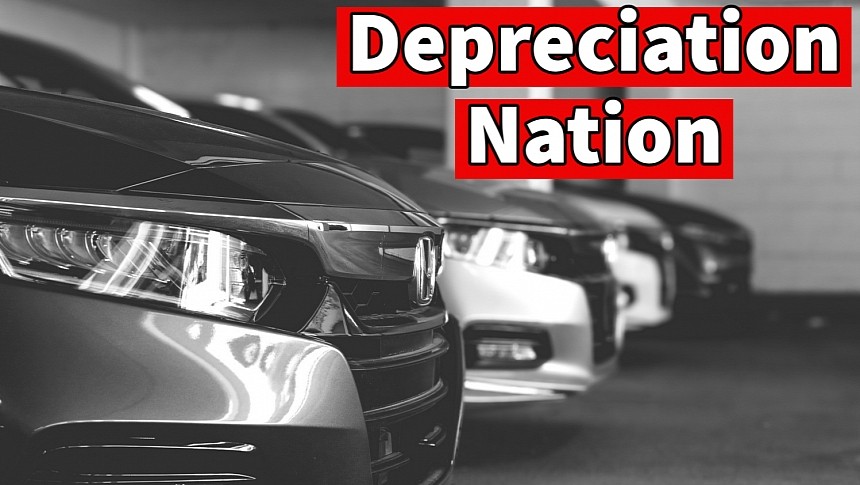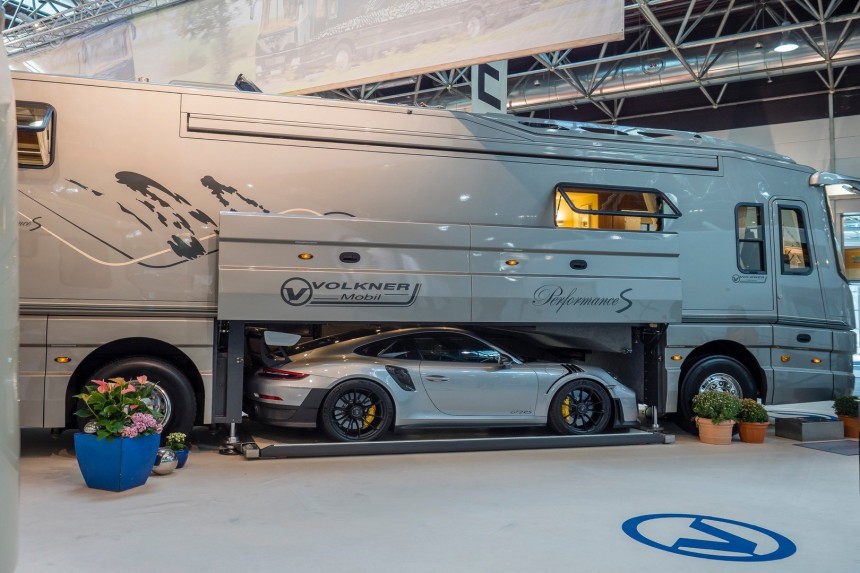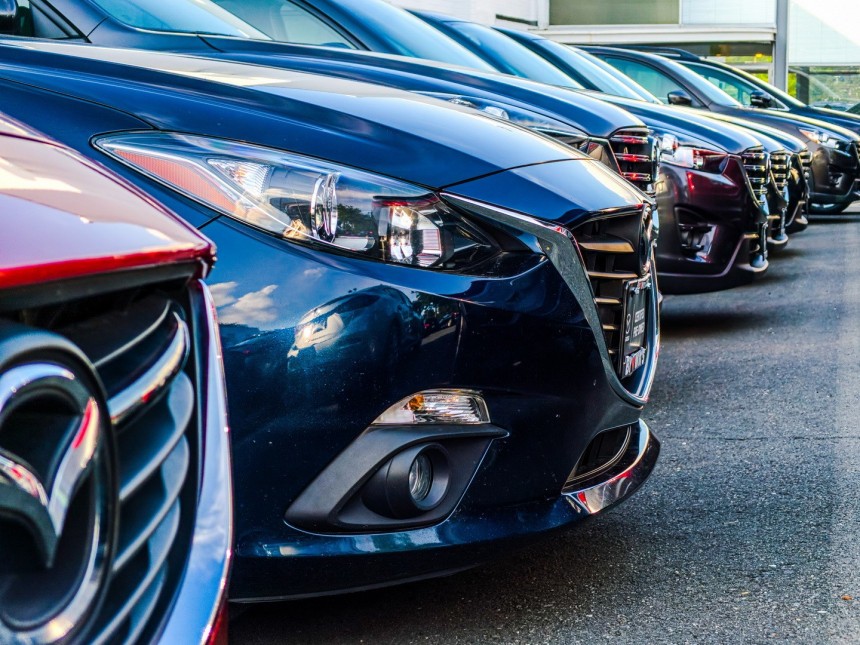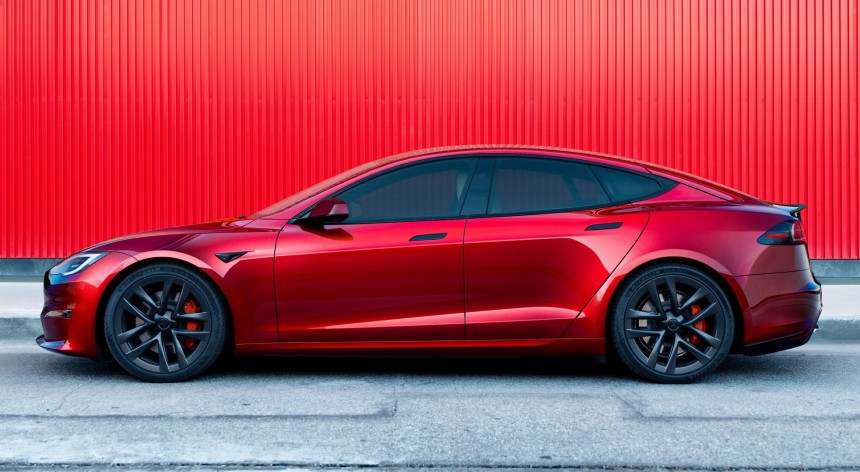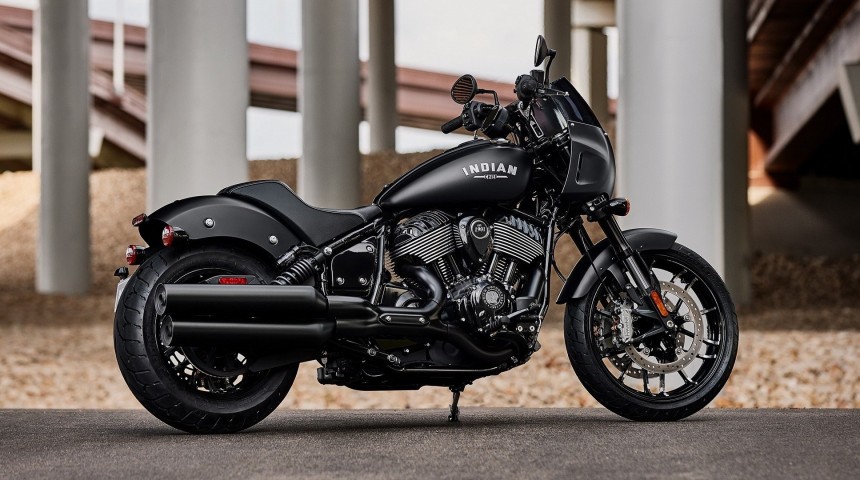If we were to go by the standard definition, "resale value" is the monetary value of a product at a time in the future when it is sold again, following your original purchase. It applies to just about any type of asset that can be bought and then resold, such as cars, boats and even homes. But how can you make sure you'll never get seriously impacted by it? Well, keep reading.
Each time you resell something, that asset’s value is going to be altered, and will change accordingly, based on its age, condition, its place within the market and the market itself. Also, different markets perform differently, meaning you won’t find many parallels between the automotive market and the housing market.
With homes, values tend to appreciate over time, whereas automobiles mostly depreciate – unless we’re dealing with special edition luxury exotics and things of that nature.
The value of a regular car will go down rather quickly when sold second-hand to a new buyer. Heck, some cars lose more than 15-20% of their value as soon as they’re driven off the lot.
So then, housing is a no-brainer, but what about mobile housing? Now you’re getting it.
Class A RVs are the most expensive, while Class B and C vehicles exist at the other end of the spectrum. Depreciation rates will obviously vary among these classes, but usually, the smaller and less intricate the product, the faster it’s going to lose its value over time.
Then there’s maintenance and service records. The value of your RV could take a significant hit if you don’t have all the necessary paperwork. Also, with RVs, you definitely have to check for water damage near the toilets, showers, sinks and so on. A leaky water tank will lead to all sorts of nasty business, like rust or mold.
Very few products depreciate as quickly and as brutally as cars, and you shouldn’t let the times we live in fool you. We’re in a bubble as far as the car market (new and used) is concerned, and once it bursts, people left holding onto older “generic” models will take massive hits.
But before that even happens, let’s do a deep dive into a subject matter that car journalists in general will happily avoid all day long.
If your car of choice is brand new, you need to decide whether it’s a purchase or a lease. Leasing a car means that you’re basically renting it for a specific period, resulting in a lower up-front cost, lower monthly payments (versus if you finance your purchase), and of course, less issues when it comes to resale value.
But since we’re focusing on depreciation, let’s ignore leasing and go straight into an ownership scheme, meaning you’re either buying the car with cash or taking out a loan – doesn't matter which, depreciation will affect you all the same.
For most people, and we genuinely mean most, retail probably should not be the way to go. Most brand-new cars, like your run-of-the-mill mid-size SUVs or compact crossovers, are already too expensive to begin with. And no, if you buy them used and something does go wrong after the warranty expires, however much it’s going to cost you to fix the car won’t be anywhere near as much as the savings you made simply by not paying the MSRP.
Pro Tip: Cars where the warranty period has expired (5-7 years usually) have already "peaked" from a depreciation standpoint, so you’re not going to lose too much when it’s time to sell again.
A brand new XF sedan will set you back roughly $50,000 today. After 3-5 years, it’ll be worth about $30,000 at best. However, with a few years under its belt and around 50,000 miles on the clock, a similar second-generation XF (no facelift, to be fair), will only cost you around $25,000 on the used car market, as per Edmunds.
By buying used from the get-go, you’re cutting your costs in half basically, and whatever might go wrong with the vehicle mechanically, it will definitely NOT cost you $25,000 to repair. Your margins will be mostly intact, and if you keep that car a few more years, you probably won’t lose more than five grand on it when it’s time to find it a new home.
On the other hand, with models such as a 2023 Honda Accord, buying new might be more advantageous, seeing as how most non-premium models take higher leaps in terms of quality and technology from generation to generation than premium ones. Also, the Accord is a depreciation champ, as established last week, so long-term ownership is definitely worth considering.
When you buy a used combustion engine car, your focus will likely be on comfort, reliability, specs and looks. While those factors will be in play with used EVs as well, a battery-electric car is a whole different animal, meaning you need to consider a few extra things before making your decision.
The first one is charging infrastructure. There are nearly three times as many gas stations in the United States than there are public charging stations for EVs. Could this affect resale value, though? Maybe only slightly, but it is worth keeping in mind.
The next one is range – and this is a big one. Unless you are dealing with the Lucid Air or a Tesla, you need to be careful about some of those “more affordable” EVs, which tend to have shorter ranges from the get-go.
EV batteries can lose anywhere from 5% to 10% of their capacity in the first five years of ownership, and if you’re already driving a car with not enough range (and you’re also living in a colder climate, which affects range negatively), then rest assured that depreciation is coming for you hard, and there’s nothing you can do to stop it.
Thankfully, there are federal rules in place to protect buyers (such as 8-year/100,000-mile federally mandated warranties), so if the used EV you’ve got your eye on is only a couple of years old, then there should still be some coverage left.
Pro Tip: If you’re in the market for a used EV and you’re about to take it for a test drive, ask the owner if you can take it on a longer journey, say 40-50+ miles or so, as opposed to just a few times around the block. This way, you’ll be able to monitor how quickly the battery loses charge during sustained cruising, preferably at highway speeds.
Otherwise, as you would with a combustion engine car, try to avoid high-mileage EVs of a particular age, and make sure the service history is as it should be. That being said, demand for used electric cars is still likely to be relatively low for the time being, but a shift in the other direction could happen towards the end of the decade.
“For both liquid and solid-state batteries, we are aiming to drastically change the situation where current batteries are too big, heavy and expensive,” said the company R&D exec, Keiji Kaita. According to him, Toyota has also found ways to allow solid-state battery-powered EVs to drive for 750 miles on a single charge – with charge times of 10 minutes or less.
Not only would this lead to a shakedown of the entire industry, but it would render your barely used Tesla Model 3 (random example) completely and utterly obsolete.
So, as far as resale value is concerned, you might want to get rid of your EV in a few years’ time, before that previously mentioned breakthrough takes place. Oh, and as a buyer, if you’re getting a used EV now, be ready to sell at a moment’s notice, preferably before 2027 / 2028, which is Toyota’s self-imposed deadline for the mass production of solid-state batteries. Just to be safe.
Other tips include avoiding aftermarket modifications, keeping your mileage in check, performing regular maintenance, avoiding smoking or eating inside the car and keeping your pets off the upholstery.
It’s also important that you sell your car at the right time, be it an EV or any other type of vehicle.
Ideally, if you’ve already bought a used car and now it’s time to get rid of it, things should be even simpler for you, assuming you made the initial purchase after it had already lost a large chunk of its value.
As for which models you should consider if resale value matters to you a great deal, we’ve already covered that extensively, but here’s a quick recap of our top 10 choices: Honda Accord, Porsche 911, Subaru Forester, Volkswagen Tiguan, Mazda3, Honda Pilot, Mazda MX-5 Miata, Toyota Prius, Mercedes-Benz G-Class, Lexus IS.
Meanwhile, the likes of the Audi A8, Jaguar XF, Nissan Armada, LEAF, Jeep Cherokee, Chrysler 300 and pretty much everything else that’s been superseded by newer competitors, should be purchased at your own risk. Their residuals will be in the proverbial toilet after only a few years.
A Ferrari? Get that Assetto Fiorano package. Porsche? The Weissach package. Also, don’t forget about a bespoke color, something that only you and maybe a handful of other people would have chosen.
Of course, if you can upgrade from a supercar to a hypercar, odds are you’ll never have to worry about depreciation, especially if it’s a limited production model. As for the rest of us, as long as we stay away from any boneheaded decision when it comes to which cars we purchase, depreciation will likely go easy on us.
We’ve found that cruisers tend to hold on to their value best over time, followed closely by sports bikes and regular “naked” road bikes. Something like a brand-new Indian Chief will hardly lose any of its value during the first 1-2 years of ownership. Maybe around 15%. Meanwhile, the value of a Honda CBR 1000RR will plummet a lot quicker over that same period.
You’ll take an even bigger hit on enduro and motocross bikes, seen as how they don’t hold as much mass appeal as their larger siblings. Both scooters and e-scooters struggle with residuals too, as well they should. But if you’re taking really good care of them over time, you should be able to still sell at a decent price.
Most of us don’t have that luxury though, and we’re left with having to find the right time to sell during ownership. On the other hand, stressing about the value of consumer goods does not make for a relaxing time. Most people want to be able to enjoy life without having to worry about what may or may not happen in the future.
However, if you view all aspects of life through business-conscientious lenses, you will definitely want to make sure that you make smart purchases to begin with, and hopefully this article will help guide you.
With homes, values tend to appreciate over time, whereas automobiles mostly depreciate – unless we’re dealing with special edition luxury exotics and things of that nature.
The value of a regular car will go down rather quickly when sold second-hand to a new buyer. Heck, some cars lose more than 15-20% of their value as soon as they’re driven off the lot.
When should I not worry about depreciation?
Only when dealing with a specialized market where assets tend to go up in value in perpetuity. The housing market is a good place to start. Why is this market so bulletproof, you ask? Because land never depreciates. At least not without the interference of some natural forces. Otherwise, land never loses value, it’s always just there.So then, housing is a no-brainer, but what about mobile housing? Now you’re getting it.
Let’s talk RVs and campers
When it comes to RVs, campers and depreciation, several factors are worth considering. Curiously, buyers don’t care that much about mileage, but rather the age of such products. You also have to consider the class to which your mobile home belongs.Class A RVs are the most expensive, while Class B and C vehicles exist at the other end of the spectrum. Depreciation rates will obviously vary among these classes, but usually, the smaller and less intricate the product, the faster it’s going to lose its value over time.
Cars, lots of cars
We know that most of you are generally interested in passenger vehicles, so we won’t keep you in suspense much longer.Very few products depreciate as quickly and as brutally as cars, and you shouldn’t let the times we live in fool you. We’re in a bubble as far as the car market (new and used) is concerned, and once it bursts, people left holding onto older “generic” models will take massive hits.
But before that even happens, let’s do a deep dive into a subject matter that car journalists in general will happily avoid all day long.
New vs. Used
To better understand resale value when it comes to cars, you first need to understand the value of the product itself at a particular stage of its life cycle.If your car of choice is brand new, you need to decide whether it’s a purchase or a lease. Leasing a car means that you’re basically renting it for a specific period, resulting in a lower up-front cost, lower monthly payments (versus if you finance your purchase), and of course, less issues when it comes to resale value.
But since we’re focusing on depreciation, let’s ignore leasing and go straight into an ownership scheme, meaning you’re either buying the car with cash or taking out a loan – doesn't matter which, depreciation will affect you all the same.
Pro Tip: Cars where the warranty period has expired (5-7 years usually) have already "peaked" from a depreciation standpoint, so you’re not going to lose too much when it’s time to sell again.
Paint me a picture
Back when we did our Cars and SUVs with the Worst Resale Value in 2023 story, we knew the top 3 vehicles would undoubtedly be premium products. Let’s just pluck the Jaguar XF from there randomly and look at some numbers.A brand new XF sedan will set you back roughly $50,000 today. After 3-5 years, it’ll be worth about $30,000 at best. However, with a few years under its belt and around 50,000 miles on the clock, a similar second-generation XF (no facelift, to be fair), will only cost you around $25,000 on the used car market, as per Edmunds.
By buying used from the get-go, you’re cutting your costs in half basically, and whatever might go wrong with the vehicle mechanically, it will definitely NOT cost you $25,000 to repair. Your margins will be mostly intact, and if you keep that car a few more years, you probably won’t lose more than five grand on it when it’s time to find it a new home.
On the other hand, with models such as a 2023 Honda Accord, buying new might be more advantageous, seeing as how most non-premium models take higher leaps in terms of quality and technology from generation to generation than premium ones. Also, the Accord is a depreciation champ, as established last week, so long-term ownership is definitely worth considering.
EVs and resale value
The second-hand market for electric vehicles is still in its infancy. If this was the universe, then the Big Bang would have just happened. According to data analytics company Experian, U.S. roads held roughly 2.2 million EVs at the end of 2022 and while the used EV market is still tiny today, we expect it to expand considerably into tomorrow. One day in the not-so-distant future, shopping for a used electric vehicle will become just as common as shopping for a combustion engine one is today.When you buy a used combustion engine car, your focus will likely be on comfort, reliability, specs and looks. While those factors will be in play with used EVs as well, a battery-electric car is a whole different animal, meaning you need to consider a few extra things before making your decision.
The first one is charging infrastructure. There are nearly three times as many gas stations in the United States than there are public charging stations for EVs. Could this affect resale value, though? Maybe only slightly, but it is worth keeping in mind.
The next one is range – and this is a big one. Unless you are dealing with the Lucid Air or a Tesla, you need to be careful about some of those “more affordable” EVs, which tend to have shorter ranges from the get-go.
Thankfully, there are federal rules in place to protect buyers (such as 8-year/100,000-mile federally mandated warranties), so if the used EV you’ve got your eye on is only a couple of years old, then there should still be some coverage left.
Pro Tip: If you’re in the market for a used EV and you’re about to take it for a test drive, ask the owner if you can take it on a longer journey, say 40-50+ miles or so, as opposed to just a few times around the block. This way, you’ll be able to monitor how quickly the battery loses charge during sustained cruising, preferably at highway speeds.
Otherwise, as you would with a combustion engine car, try to avoid high-mileage EVs of a particular age, and make sure the service history is as it should be. That being said, demand for used electric cars is still likely to be relatively low for the time being, but a shift in the other direction could happen towards the end of the decade.
Could Toyota disrupt the used EV market?
It was earlier this month that Japanese carmaker Toyota unveiled its ambitious plan to halve the size, cost and weight of EV batteries thanks to a breakthrough in solid-state battery technology.“For both liquid and solid-state batteries, we are aiming to drastically change the situation where current batteries are too big, heavy and expensive,” said the company R&D exec, Keiji Kaita. According to him, Toyota has also found ways to allow solid-state battery-powered EVs to drive for 750 miles on a single charge – with charge times of 10 minutes or less.
Not only would this lead to a shakedown of the entire industry, but it would render your barely used Tesla Model 3 (random example) completely and utterly obsolete.
So, as far as resale value is concerned, you might want to get rid of your EV in a few years’ time, before that previously mentioned breakthrough takes place. Oh, and as a buyer, if you’re getting a used EV now, be ready to sell at a moment’s notice, preferably before 2027 / 2028, which is Toyota’s self-imposed deadline for the mass production of solid-state batteries. Just to be safe.
Protecting the resale value of your own car
There are a few simple rules you can follow so that your car’s resale value doesn’t plummet more than it should. Ignoring for a second the make and model, you can start simply by purchasing the vehicle in a popular colorway, avoiding anything too extreme or odd.Other tips include avoiding aftermarket modifications, keeping your mileage in check, performing regular maintenance, avoiding smoking or eating inside the car and keeping your pets off the upholstery.
It’s also important that you sell your car at the right time, be it an EV or any other type of vehicle.
Ideally, if you’ve already bought a used car and now it’s time to get rid of it, things should be even simpler for you, assuming you made the initial purchase after it had already lost a large chunk of its value.
Meanwhile, the likes of the Audi A8, Jaguar XF, Nissan Armada, LEAF, Jeep Cherokee, Chrysler 300 and pretty much everything else that’s been superseded by newer competitors, should be purchased at your own risk. Their residuals will be in the proverbial toilet after only a few years.
What if I own a supercar?
First of all, congratulations. Second, if you have the opportunity to fully configure the car before purchasing it, make sure to add any and all special features and performance packages, because they tend to do wonders for its resale value down the road.A Ferrari? Get that Assetto Fiorano package. Porsche? The Weissach package. Also, don’t forget about a bespoke color, something that only you and maybe a handful of other people would have chosen.
Of course, if you can upgrade from a supercar to a hypercar, odds are you’ll never have to worry about depreciation, especially if it’s a limited production model. As for the rest of us, as long as we stay away from any boneheaded decision when it comes to which cars we purchase, depreciation will likely go easy on us.
Motorcycles and scooters
Like with all types of vehicles, residuals for motorized two-wheelers can be impacted by make, model, mileage, age and overall condition. However, segment is also very important here.We’ve found that cruisers tend to hold on to their value best over time, followed closely by sports bikes and regular “naked” road bikes. Something like a brand-new Indian Chief will hardly lose any of its value during the first 1-2 years of ownership. Maybe around 15%. Meanwhile, the value of a Honda CBR 1000RR will plummet a lot quicker over that same period.
Conclusion
Depreciation is like Thanos. It’s inevitable. The only way to circumvent it is by spending a lot of money in the first place on products that might even go up in value over time, like a limited edition hypercar.Most of us don’t have that luxury though, and we’re left with having to find the right time to sell during ownership. On the other hand, stressing about the value of consumer goods does not make for a relaxing time. Most people want to be able to enjoy life without having to worry about what may or may not happen in the future.
However, if you view all aspects of life through business-conscientious lenses, you will definitely want to make sure that you make smart purchases to begin with, and hopefully this article will help guide you.
